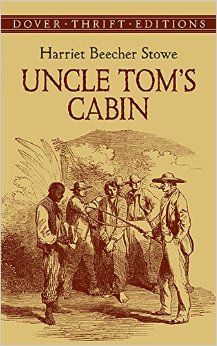Once more, Jack Frost hits the nail in his endeavors to educate pro-whites who ignore that Christian morality has been more a primary causative factor of white decline than Jewish subversion. At The Occidental Observer Frost has responded to a commenter:
____________________
“Well, I think that if nothing else, the Jewish infrastructure ensures that there are lots of jobs and financial incentives to going along with their program. Non-Whites will not be immune to that.”
Non-whites don’t need incentives to hate whites. This is the same error that Christian conspiracy theorist Alex Jones makes. Jones’ constant refrain is that, but for the instigation of the globalists (who promote racial antagonism in a sinister “divide and conquer” strategy, of course), the races would naturally exist in a state of harmony and universal brotherhood. Because his almost all white audience has been steeped in Christian BS their whole lives, they already “know” this to be true and so they buy it.
Beyond this though, it seems to me the whole “incentive model” is taken from animal studies and is really an explanation that explains nothing when it comes to human behavior, which is made much more complex by an ability to foresee consequences that is vastly more advanced than in other animals.
Example 1: One incentivizes a rat to run a maze by rewarding him with a food pellet. Over time, you train the rat to do this, so in a sense, it’s fair to say your incentive is the cause of his maze-running behavior.
Example 2: You are walking down the street, see an attractive woman, and you incentivize her to have sex with you by offering her $50. At this point, she has a choice. She can either take you up on it or slap your face and walk away. Clearly, if she takes the money in exchange for her services, she’s a whore. But she might have done it for free, in which case she’d be only a slut. On the other hand, maybe she’d have done it anyway, but decided to take the $50 just because you offered it and it might come in handy later. In any case, whether she takes the money or not, nothing can really be said from this about questions of causality or morality. Your offer of $50 didn’t cause her to become a whore, if that’s what she is. Conversely, if she slapped your face and walked away, your offer of $50 didn’t in any way cause her virtue. In fact, it’s quite conceivable she might actually be a whore, but thought your offer was too low.
In the same way, Jewish incentives can’t meaningfully be said to cause any white (or even non-white) actions. Unlike in animal studies, with humans there is in fact almost never any way to distinguish between voluntary cooperation and caused (i.e., incentivized) behavior.
“We cannot determine these questions without further information, but what we can determine is that such incentives sway at least some people who would not otherwise have acted in the same manner.”
That seems reasonable, but still, you are assuming what you are setting out to prove. I can reduce it to this: Because human motivations are complex, much more so than with animals, there’s no way to ever be completely sure if something is done for an incentive or for other reasons. With the rat experiment, you can show causality because if you stop giving the reward, eventually the maze-running behavior will be extinguished. With humans, it’s much more complicated. They might, and in fact, in the case of sex, doubtlessly would, find other reasons to continue the behavior even if the incentive were not offered. To tie it in a little better to Kevin MacDonald’s remark, if a white man takes a job working for the Equal Employment Opportunity Commission, is he doing it for the money and prestige (i.e., incentive), or because he actually believes in racial and sexual equality? Or both? Or neither? From the outside, and in fact, even from the inside (one’s insight into even one’s own motivation may not be perfect) I don’t see that there’s any way to say for sure.
“In this case we know how politicians (and others) behaved in the past. We know that since the rise of Jewish power, they have come to act in a dramatically different manner. We know about the control of information and we know about the system of incentives / disincentives. It would take some serious mental gymnastics to deny the causal relationships here.”
The main problem with this narrative isn’t merely that it’s an example of post hoc ergo propter hoc reasoning, but that it contradicts history. The biggest boost toward legal and social equality with the white man the negro ever received was during and in the immediate aftermath of the American Civil War. Whites did this on their own, in the absence of modern mass media and the modern educational techniques, and before Jews even began arriving on these shores in any great numbers. This again points up the importance of worldview, since this first step in the direction of equal “civil rights” for everyone, regardless of race, was framed and justified in terms of Christian morality. A great many of the most prominent Abolitionists were Christian religious fanatics.
“We shouldn’t forget that it is not just the incentives / punishments that are in play here, there is also the power of Jews to control the flow of information upon which individuals rely to form their own world views. This is at least as important as the incentives / punishments in my opinion.”
Worldview is in fact much more important and more powerful than a system of incentives because it is logically prior to any such system. Worldview establishes a system of value that determines what can be used as an incentive and what can’t. For example, it determines whether money or race is considered more important. Someone who truly puts race first can’t be “incentivized” with money.
It’s not clear that Jews control white worldviews though, unless you want to allow that they’ve been in control of whites for two thousand years or more. A difficult position to maintain! In any case, to eliminate Jewish influence you’d have to go all the way back to pre-Christian times.
“In fact, the subject of abolition of slavery is not even relevant to subject here.”
I think the setting of negroes on equal footing with whites by means of a war that cost hundreds of thousands of white lives is extremely relevant. What it shows is that whites are quite willing to impose racial genocide upon themselves without any help from Jews.
“It has been well established that if you can control the information that people are exposed to, you can to a large extent mold their opinions and world view.”
Your argument here is tautological. If you can control people, then you can control them. Yes, that’s true, but so what? Information about Jews is widely available. That’s not the problem. The problem, from the white point of view, is that people overwhelmingly reject both racism and anti-Semitism. They just don’t agree with you. It doesn’t necessarily indicate they’re being “controlled”. If you have ever managed to persuade anyone to see the Jewish question your way does that mean that you’re now controlling them? The question you’re not coming to terms with is, how do you distinguish between someone who simply doesn’t agree with you from someone who is being “controlled”? If the problem is only lack of information, then it should vanish as soon as you supply the missing information. But it doesn’t.
“Clearly using their control of the money and media has been used to transform the culture and the society. It has been used to mold public opinion by altering the worldview of millions of Whites (and non-Whites).”
After the Christian takeover of white civilization, the philo-Semitic, anti-racist worldview of Christianity has never been altered by Jews. There’s been no need. The program it set forth has just been carried out and refined over generations by willing participants.
“It seems a reasonable and logical assumption that if one can control these environmental factors, that one can affect the worldview of an individual or even an entire society. ”
If you can control people, then you can control them? Again, a tautology. But I’m not persuaded that anyone really controls the worldview of a whole society or can dictate a change in it. There’s such a thing as reality, after all, and instinctive drives, such as the will to live, and to procreate. Surely that must count for something. Everyone has immediate and unrestricted access to the world itself through their own senses. They can see what is going on.
“I have held positions in the past based upon my exposure to mass media that I have since repudiated when I discovered that the ‘facts’ upon which I had based those opinions were not true.”
Again, the issue you are avoiding is how to tell the difference between someone honestly disagreeing with you and their being “controlled” to disagree. Also, I have to ask, what accounts for your peculiar immunity from this seemingly omnipotent Jewish “control”? Why is such immunity not more widespread? Why doesn’t merely informing the vast majority of people of the “facts” as you see them change their minds on the Jewish question?
“This is precisely what is happening to us. We are being domesticated and if we are to do anything more than allow ourselves to be herded to our fate, we need to understand what is happening, what the processes at work are and who is driving this.”
I agree that people are being modified genetically by civilizational processes; “tamed” if you want to put it that way. But most whites see civilization as a good thing and are willing participants. If they’re wronged or damaged, rather than killing someone in a duel, they sue. If a relative is murdered, rather than starting a clan-based vendetta, they let police and the courts handle it. Just as with the use of birth control to lower the white fertility rate below replacement level, this is not something Jews are doing to white people. They are doing it to themselves.
“If control of the flow of information and a structure of incentives designed to encourage anti-White behavior are not effective, then why all the hand wringing about Jewish control of media and the monetary system?”
I hate to break it to you, but not many white people are actually worried about this, Bob. They approve of the status quo, and in fact it would be impossible to run such a vast and complicated panopticon without the approval and active participation of white people.
“In fact, why are we all wasting our time trying to provide an alternative worldview to our fellow Whites at all if our information is not going to have any effect on their worldview?”
I think you’re confusing worldview with mere political opinions. They’re not the same thing at all. That’s why trying to build a political mass movement through “education” is a waste of time, in my opinion.
All attempts at educating white people out of their Christian worldview of universal brotherhood and racial / sexual equality have failed, and I believe this is because worldviews don’t so much depend on facts as determine what is regarded as a fact. They provide the framework for interpreting reality; for saying both how the world is and how it ought to be. They aren’t political opinions, but lay the groundwork for those opinions by defining what is permissible and what isn’t.
A shared worldview among the citizenry is essential for the smooth functioning of society. That’s why the state puts such emphasis on assimilating elements within it that don’t necessarily accept the standard list of Christian values: non-violence, anti-racism, respect for authority, belief in the value of work, and of the sacredness of human life as opposed to that of animals; belief in a uniquely human free will, a just God and fair dealing, equality, sin, forgiveness, redemption, the importance of being “moral”, etc.

Even a fellow like you, who thinks he is above being “controlled”, has actually accepted it, as your denunciation of slavery showed. In the Civil War you’d have been an abolitionist, fighting against your own race! Yet imagine what chaos would reign if people rejected all of these values, or simply forgot about them! Only at that point could you say they have changed their worldview. Of course, such a change would probably make civilization as we know it today impossible.
Christianity is a very good religion if you want to build a race-neutral technological civilization, but, as history has shown, it is quite inadequate to the task of preserving race.
“It shows nothing of the kind, unless of course you buy into the propaganda that the war was waged to end slavery. This is something that we know to be untrue. We need only look at the contemporary writings of Lincoln and others who were directly involved in the decision to wage that war.”
It’s something that you think you know is untrue, for reasons that are entirely unclear to me. What about the songs the soldiers would sing before marching into battle? Read the lyrics to The Battle Hymn of the Republic some time, replete with Christian religious imagery, and the telling phrase “let us die to make men free.” Or how about that other popular ditty, John Brown’s Body:
Old John Brown’s body lies moldering in the grave,
While weep the sons of bondage
whom he ventured all to save;
But tho he lost his life while struggling for the slave,
His soul is marching on.
John Brown was John the Baptist of the Christ we are to see,
Christ who of the bondmen shall the Liberator be,
And soon thruout the Sunny South the slaves shall all be free,
For his soul is marching on.
Or read Harriet Beecher Stowe’s 1852 book Uncle Tom’s Cabin, which sold more copies in its day than any book except the Bible. These are facts that are very hard to explain unless abolitionism had a great deal to do with the war.
“The truth is that mistrust of Jews and belief in racial separation were the norm just a few generations ago. The average White American in the 1950’s would find nothing controversial about most of the views expressed here on The Occidental Observer. Why have they come to reject ‘anti-Semitism’ and ‘racism’?”
Please think about what you are saying. The average white American man of the 1950s had just returned from crushing racist, anti-Semitic Nazi Germany, and he was mighty damn proud of himself for doing so, Bob. If anti-Semitism and racism had not already been so unpopular, there would probably not have been a war at all. Stateside, the races were still segregated compared to today, but much less so compared to slave times. There has been a slow but steady progression in integration and race mixing over time, just as always happens in any society in which two races live together. It has happened throughout history all over the world, even in places with no Jews. It’s part of the civilizational process.
“If the world was populated by philosophers and people with the time and inclination to research these things and sort them out for themselves, then your point would be valid, but it is not. Most people are busy trying to live their lives. They don’t expend extraordinary amounts of time and energy fact checking and researching ideological questions. They form their worldview based upon the culture within which they are immersed, the indoctrination they have been exposed to and the information that is spoon fed to them by the mass media.”
In that case, a well-informed fellow like you should be able to cure their ignorance very quickly, Bob. But the puzzling thing is, you can’t. All such efforts have failed, even by people far more eloquent than either of us, and even by those with far more prestige and power.
“Insofar as the domestication of Whites goes, if you think that the future we are facing is just the evolution of civilization, then you have completely misunderstood what I am saying.”
I think I’ve understood you perfectly. I just disagree with you.
“I do appreciate your contribution and your efforts certainly do cause me to think about things from different points of view. Thanks.”
Likewise, Bob. I appreciate your efforts too. Even when we disagree, they challenge me and help me tighten up my thinking.





